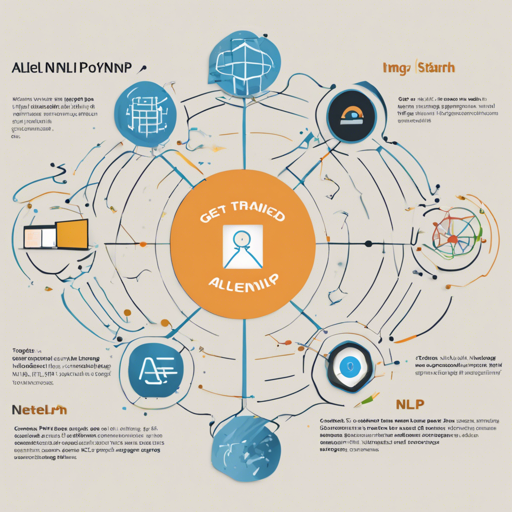Welcome to the world of AllenNLP, an Apache 2.0 NLP research library built on PyTorch. This powerful tool allows developers and researchers to create state-of-the-art deep learning models for various linguistic tasks. In this guide, we will walk you through the process of using AllenNLP, from installation to basic usage, making it as user-friendly as possible!

Getting Started Using the Library
If you’re eager to dive into model development with AllenNLP, the first step is to familiarize yourself with the AllenNLP Guide. This guide provides a thorough introduction to the library followed by more advanced guides available on GitHub Discussions.
When you are ready to start your project, you can choose from template repositories:
- For using allennlp train and config files: Template 1
- For configuring experiments with Python code: Template 2
How To Install AllenNLP
Installing AllenNLP is simple and can be done via different methods:
1. Installing via Conda
If you prefer using Conda, run:
conda install -c conda-forge python=3.8 allennlp2. Installing via Pip
To install AllenNLP using Pip, first follow instructions on PyTorch to install the PyTorch ecosystem. Then run:
pip install allennlpCheck for the dataclasses package that might cause issues:
pip freeze | grep dataclassesIf it exists, uninstall it with:
pip uninstall -y dataclasses3. Installing using Docker
If you want a consistent environment, using Docker is the way to go. Simply run the following command:
docker run --rm --gpus all -v $HOME/allennlp:/root/allennlp allennlp/allennlp:latestRunning AllenNLP
Once installed, you can access the command-line interface with the allennlp command. This command offers various subcommands, including train, evaluate, and predict. To see all available commands, run:
allennlp --helpFor testing your installation, execute:
allennlp test-installTroubleshooting
If you encounter any issues during installation or while using AllenNLP, here are a few troubleshooting ideas:
- Ensure that you have installed the correct version of Python (at least 3.6.1).
- For any package dependencies issues, ensure your virtual environment is correctly set up.
- If plugins are not loading, create a local or global plugins file to list the required plugins.
For more insights, updates, or to collaborate on AI development projects, stay connected with fxis.ai.
At fxis.ai, we believe that such advancements are crucial for the future of AI, as they enable more comprehensive and effective solutions. Our team is continually exploring new methodologies to push the envelope in artificial intelligence, ensuring that our clients benefit from the latest technological innovations.
Conclusion
AllenNLP serves as an excellent library for NLP researchers and developers, combining functionality with ease of use. By following the steps outlined above, you’ll be well on your way to creating effective NLP models. Now, unleash your creativity and let the world of AllenNLP enhance your AI projects!

